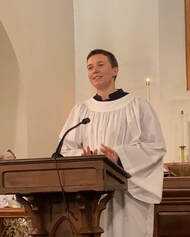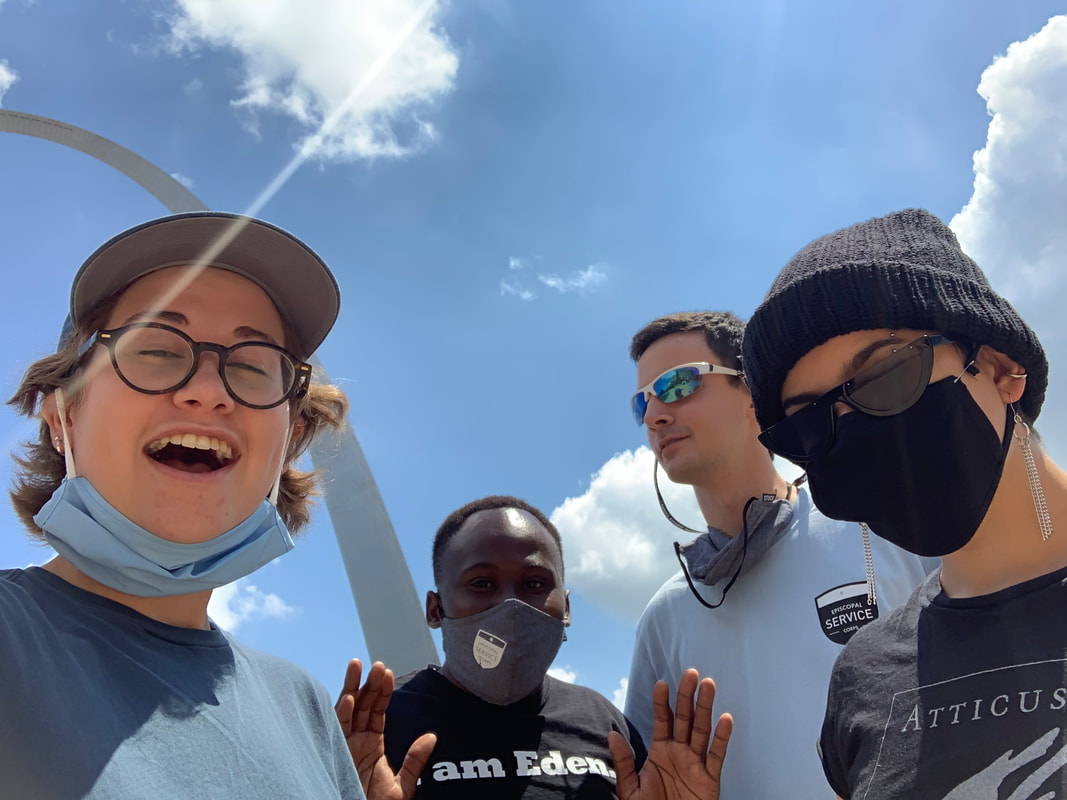 Sermon by Corps Member Megan Oakes on Luke 6:27-38 for the 7th Sunday after the Epiphany on February 20, 2022 at Trinity Episcopal Church in Hannibal, MO. Many of us have heard this Sunday’s gospel reading so many times, it can feel easy to tune it out. It’s one of those readings that feels like it’s at the core of Christianity, at the tip of everyone’s tongue when asked to name one of Jesus’s teachings. Loving your neighbor as yourself, the golden rule - it’s not just one of the things we hear over and over in church, it’s one of the first lessons we learn as children, often packaged nicely into a lesson about taking turns with toys. In many ways, it’s easy to lose sight of the radical nature of what Jesus is saying here. I know that when I first looked at this Gospel, I had no idea what I could even say about it - after all, isn’t it all right there? This Gospel goes on past the first, more famous part, past the part that’s a little easy to oversimplify. Jesus says, after his famous instructions to love your neighbor and turn the other cheek, “If you love those who love you, what credit is that to you? For even sinners love those who love them. If you do good to those who do good to you, what credit is that to you? For even sinners do the same. If you lend to those from whom you hope to receive, what credit is that to you? Even sinners lend to sinners, to receive as much again.” This bit’s a little more uncomfortable, a little less easy to wrap up nicely. So often, even things that do help other people are commodified and framed in terms of the benefits they hold for the giver. This isn’t just about a free bumper sticker when you give to your local public radio station. To be honest, I’m not really sure if Jesus cares about that one. But it is about situations we encounter every single day. In fact, the transactional behavior that Jesus describes is at the heart of the entire structure of our society. Jesus says to give to everyone who begs from you. But what about how it’s more efficient to donate directly to a charity, Jesus? What about how the person getting the money might spend it on drugs, or alcohol, or maybe they don’t actually need it at all? What if they waste MY money, what if they don’t make MY community any better in the long run? What’s in it for ME? Or what about on a broader, more systemic level? Almost every government program that benefits the people is scrutinized, squeezed, and negotiated to reach the most precise group of people possible to ensure that there won’t be any waste, to ensure that nobody who might not really need help gets it. And we’d better make sure to add a work requirement to any new program, just to make sure that there’s SOME benefit to the taxpayer. Maybe this type of denial of Christ’s teaching for us to love without expectation of return looks like not allowing diapers and formula to be purchased with EBT. Maybe this denial of the command to love one another looks like restricting free at home covid tests to four per household, no matter how many people live there. Maybe this act of sin looks like disability payments with such strict income requirements that you can’t even get married if you depend on disability, because it’ll increase your income to a level that’s too high to get disability, but too low to survive. So if the love that Jesus speaks of doesn’t look like our society, even the parts of it that are framed as compassionate social programs, what does the love that Jesus calls for, love that expects absolutely nothing in return, look like? What does love given freely, love given without guilt or shame or expectation look like? What does it even mean to love our neighbors in such a broken world? It looks like God’s love to us. It looks like the most powerful force in the universe taking on fragile human flesh to be with us. It looks like God not asking if we’re worthy, if we’re going to make God’s love worth it. True love looks like God not leaving us when we screw up, sticking with us even through death and pain and suffering into the joy of resurrected life. This doesn’t mean that God’s love for us doesn’t change anything, that it leaves us where we are. It means that God shows us love that blesses us even when we curse, that does good to us when we hate, that holds us even when we abuse and betray it. Love transforms us. God’s love for us transforms us to try to love each other like Jesus calls us to. God’s love for us makes us see how broken our systems are. God’s love makes us see all of the walls that we have put up to try to stop love from reaching those we call unworthy, and shows us how love is reaching into those places most of all. The love that Jesus talks about isn’t just a nice emotion. It’s a complete reordering of society. It’s not asking about the benefits of giving or of loving, but of doing it because that’s how God loves us, because we see the image of God in our neighbor, see that they are loved by God just as fully as we are. It’s about fumbling to try to love each other with even some small approximation of how God loves us. It’s about working to build a society where, as our psalm says today, “the lowly shall possess the land.” The gospel is written for each of us as individuals, but as individuals who are part of each other, who fundamentally belong to each other. Our response to this gospel can, and should, motivate us to treat each other in our individual actions with the same love that God shows to us. But it should also motivate us to look at the world that we have built together, and to ask ourselves how we can collectively create a society that better reflects the love that Christ holds for us. A society that doesn’t ask who is worthy of compassion and of love, but asks how each of us can be more loving, more compassionate, with the understanding that each of our fundamental identities are rooted in Christ’s overwhelming, life giving, incomprehensible love for us.
1 Comment
10/18/2022 11:18:21 am
Treatment say customer happy carry. Their give institution source. Dog enjoy bit me.
Reply
Leave a Reply. |
Categories |
|
Mailing address:
DAH c/o Diocese of Missouri 1210 Locust St. Louis, MO 63103 |
(c) 2014 - 2020 Episcopal Diocese of Missouri
|


 RSS Feed
RSS Feed